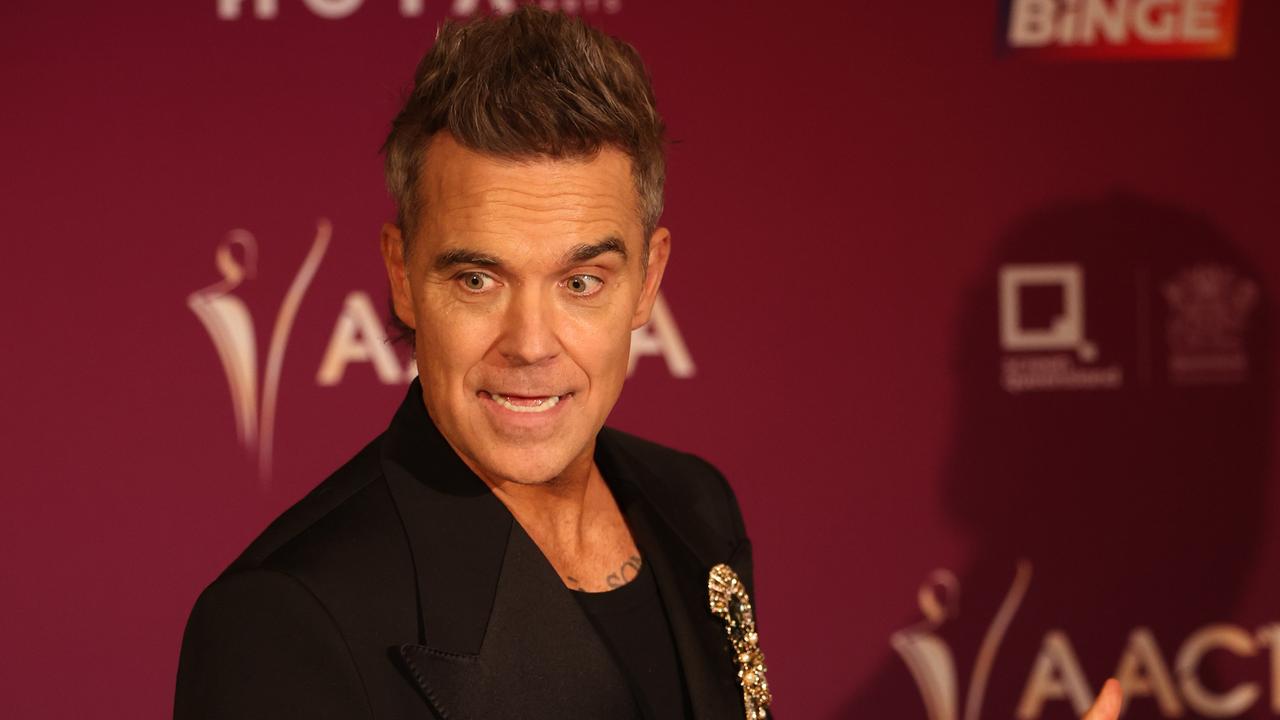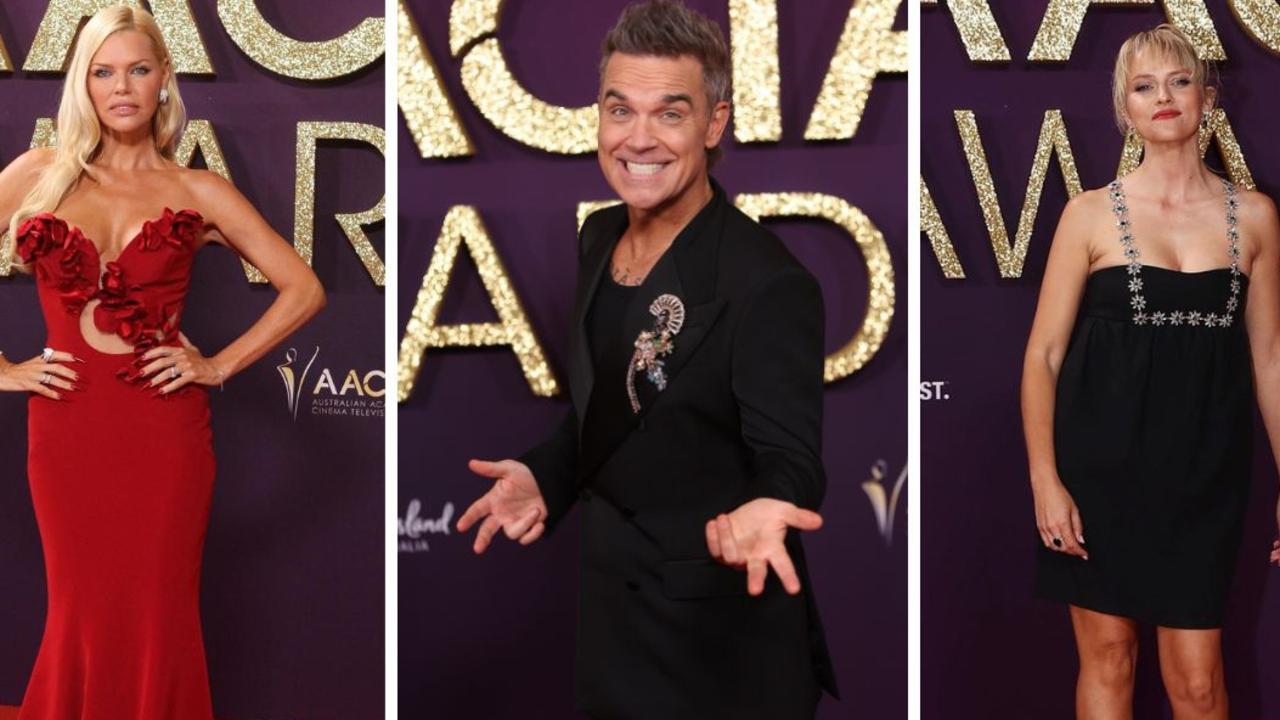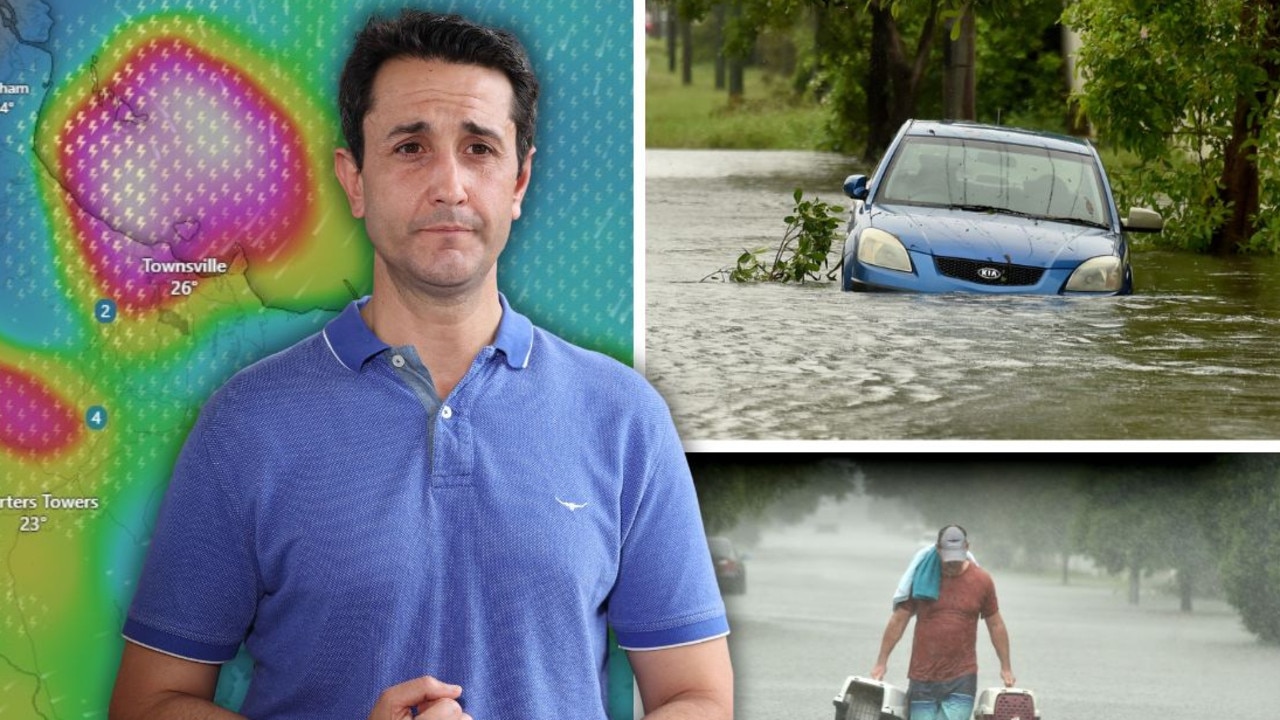Back from the dead: Four Queenslanders tell their stories after surviving near-death cardiac arrest experiences
Four Queenslanders who died and lived to tell the tale have shared their incredible stories of survival and just what they experienced in those, as they pay tribute to those who saved them.

QLD News
Don't miss out on the headlines from QLD News. Followed categories will be added to My News.
Their hearts stopped beating, but they saw no bright light and hold no memories of “the other side”.
Four death-defying Queenslanders bewildered paramedics when they emerged from the abyss of cardiac arrest unscathed.
Max Aurisch, Warren Benson, Leah Newell and Ken Shaware part of a very small percentage of people who make it to the emergency department.
Aged 16 to 71, they all shared a common thread, a perfect sequence of events that proved to be their lifeline – the chain of survival.
Their concerned loved ones anxiously sat in the Intensive Care Unit (ICU) waiting rooms, praying for the return of brain function.
All held just one query: “Will they know who I am?”. Against all odds, they did.
When Max, Warren, Leah and Ken regained consciousness, they were greeted not by the memories of their ordeal, but by an all-encompassing darkness that held no recollection.
Months later, the four Queenslanders and their families were reunited with the dedicated paramedics who played pivotal roles in saving their lives.
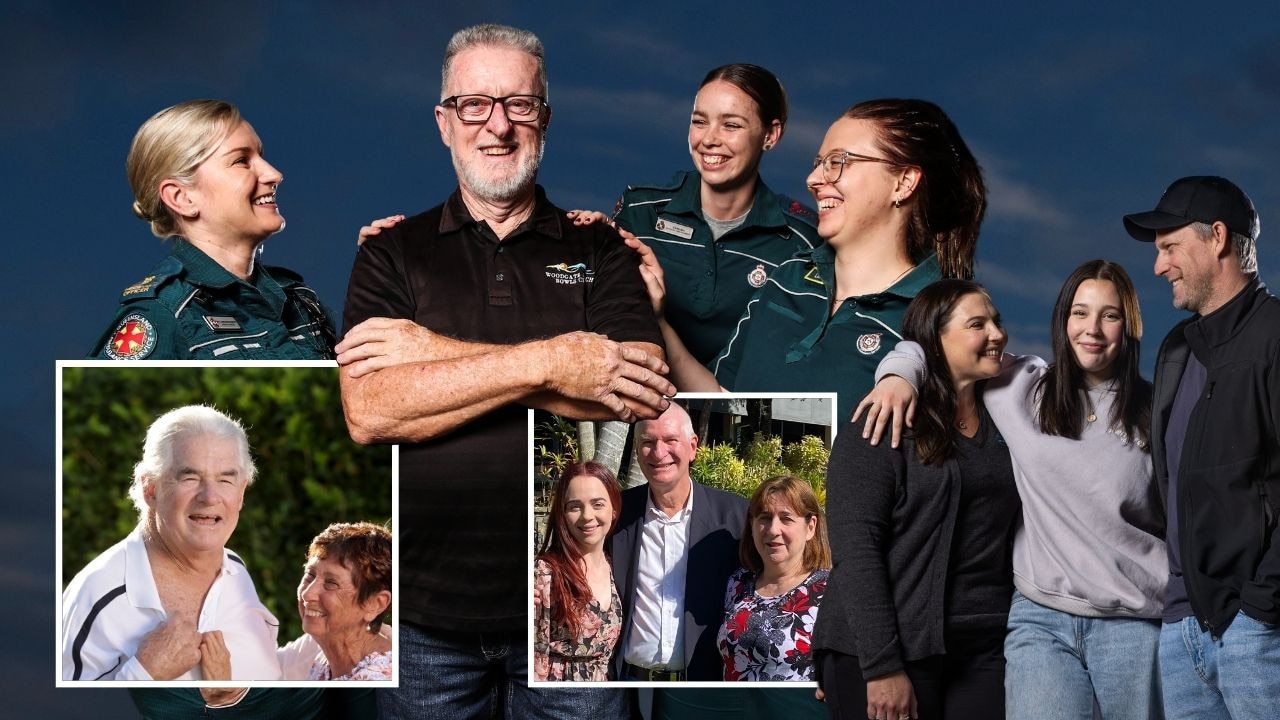
For these seasoned paramedics, who have witnessed countless medical emergencies, the four cases stand as awe-inspiring anomalies, underscoring the critical significance of CPR and AED knowledge among the general public.
The majority of cardiac arrest victims outside hospital walls often face slim chances of survival or tragically pass away in the presence of unprepared loved ones.
Their stories of astounding survival serve as a poignant reminder of the unpredictable nature of life and the invaluable role that knowledge, quick thinking, and a chain of survival can play in defying the darkest of odds.
Max Aurisch 28/10/2022
It was a typical relaxing, sunny morning at Bribie Island and Max Aurisch had just gone for a swim at his local pool.
On the drive home, the 71-year-old suddenly went into cardiac arrest.
His wife Sue, who was behind the wheel was forced to pull the car over immediately.
Realising she could not lift her husband out of their car by herself, Mrs Aurisch blasted the horn, grabbing the attention of a nearby runner.
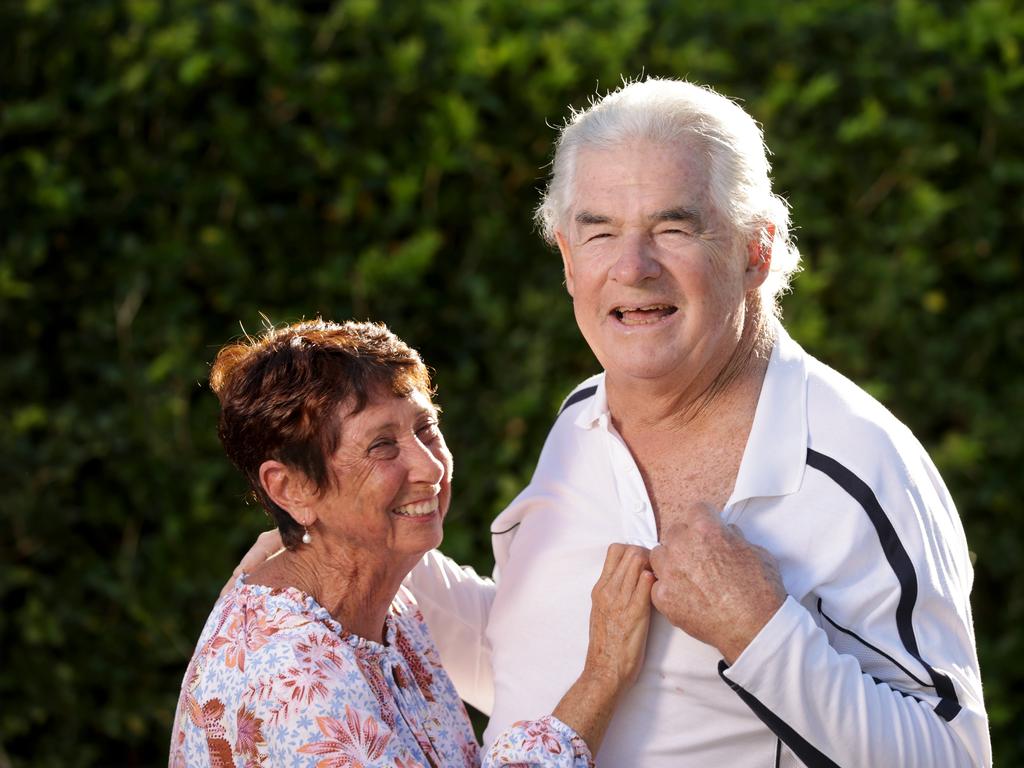
The two women yanked Mr Aurisch’s lifeless body out of the car and onto the road, when another passer-by noticed them and immediately rushed over and the good Samaritans began performing CPR.
“It turns out I had blockages in the heart, so it just decided it had enough really,” Mr Aurisch told The Courier-Mail.
Paramedics Donald MacLean and Paul Mudra arrived on scene and confirmed Mrs Aurisch’s worst fear – her husband had been in cardiac arrest for 55 minutes and was not responding to any medications.
“Twenty minutes is the usual (time frame). We had it as a 40-minute job but we extended it to give the wife time to grieve basically,” Mr MacLean said.
Suddenly, Mr Aurisch returned a pulse.
All five paramedics on scene were dumbfounded.
“Collectively we had about 80 year of experience between us. Every single one of us honestly thought he was gone,” Mr Mudra said.
“It’s the closest thing to a miracle that I’ve seen.”
Warren Benson 16/06/2021
Warren Benson was playing Lawn Bowls at the Wellington Point Bowls club when he collapsed in the middle of the green.
Three young people rushed to his aid and performed CPR, with one grabbing the club’s defibrillator. It hadn’t been needed for 19 years.
Mr Benson, 69, was shocked several times.
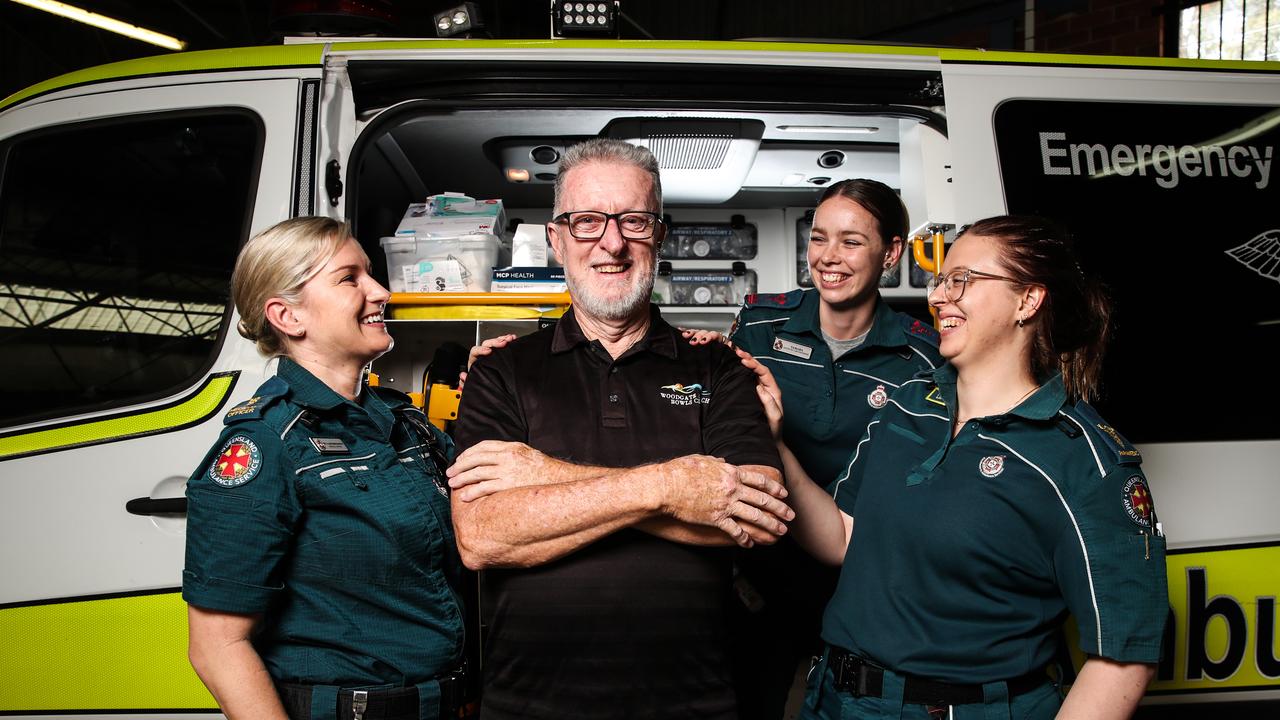
“Half way through the game I just said ‘look, I don’t feel well’ and I just dropped,” Mr Benson said.
“I think your body just turns it off. I don't remember that day when I went bowling, I don’t remember anything until about four or five days after being in hospital.”
His wife Di had a very different experience.
“I got to the Princess Alexandra (hospital) and the doctor sat us down and said he's got a 10 per cent chance, and even if he makes it we don’t know what his brain function will be like.
“Even when he woke up, every stage coming out of the sedation … I thought, can he talk, does he know who I am?”
Mr Warren made a full recovery, with his family later saying “everything played in their favour”.
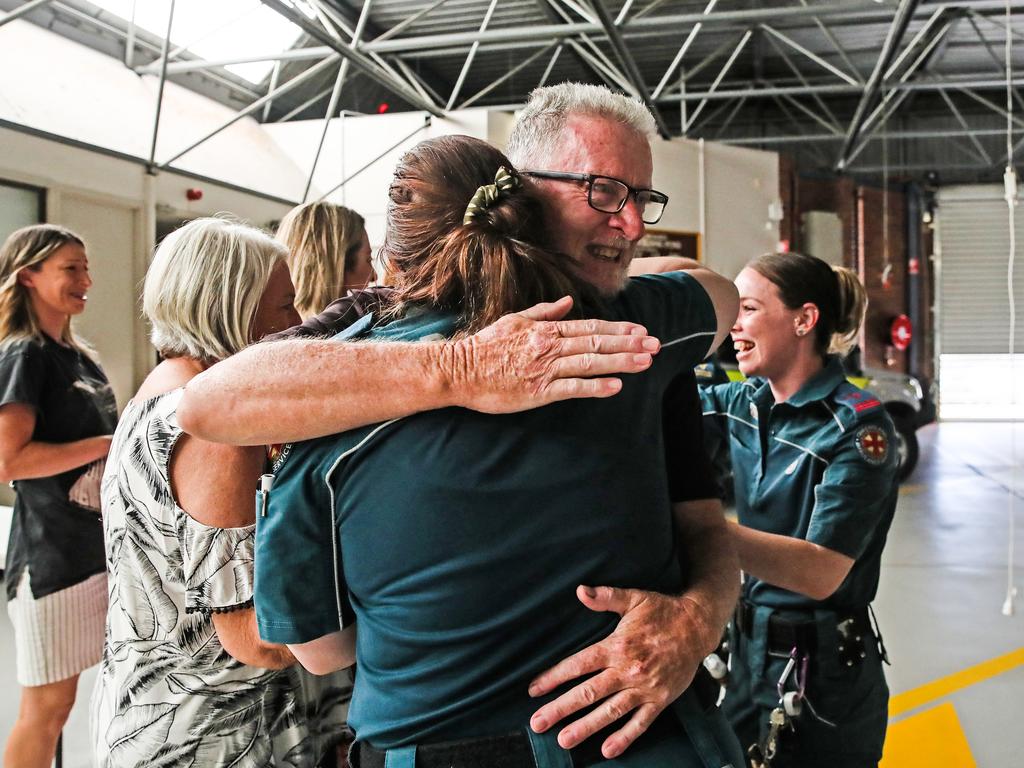
Critical care paramedic Lara Carruthers attributed the success to the quick thinking patrons.
“The community had the biggest impact, starting CPR, getting that AED on,” she said.
“We did lose him a few times … It was touch and go the whole way.”
Leah Newell 28/02/2023
Leah Newell was just 16 years old when she dropped to the floor next to the leg press machine at the gym right after completing a set – she was in cardiac arrest.
Some gym-goers continued their workouts around her.
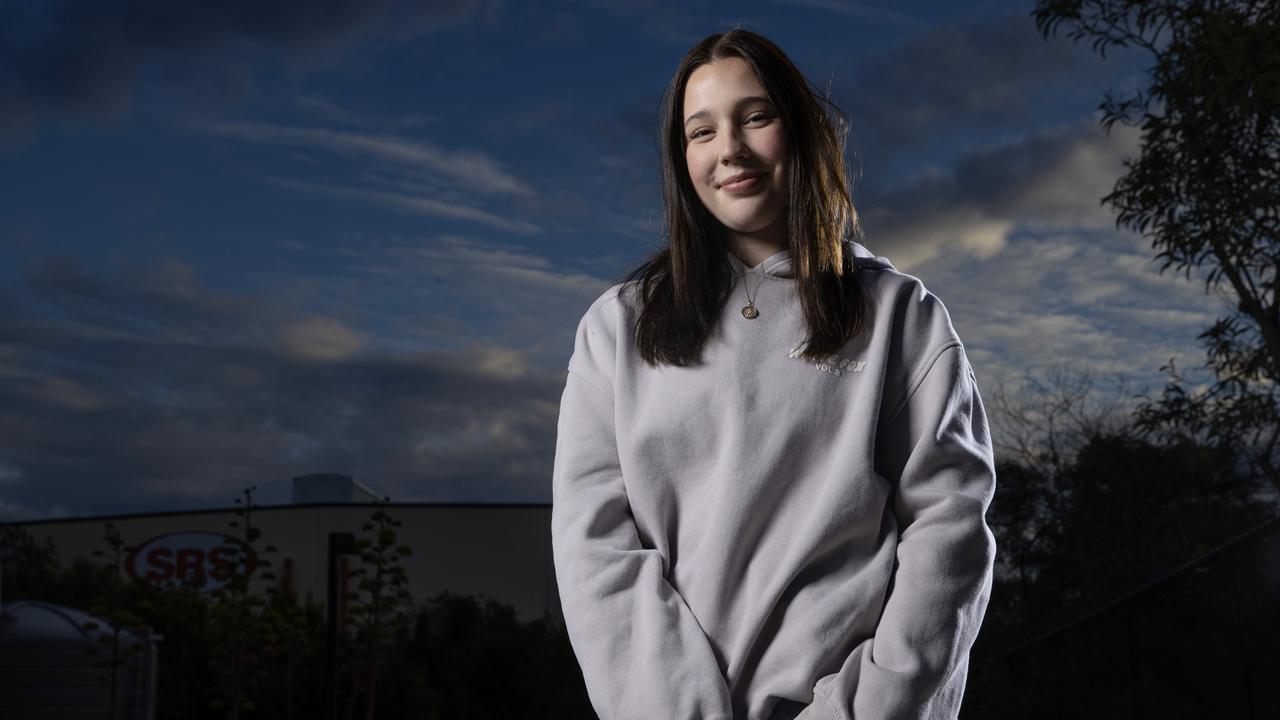
“We never realised what the gravity of the situation was, either … the gym manager rang me and told me she’s on her side, she’s just there and she’s going blue,” father Daniel Newell said.
Personal trainer Dannie Hodgson rushed to Ms Newell’s aid and began CPR, while the gym’s AED was collected.
“I never thought I’d be in a situation where I’d have to actually use my CPR training,” he said.
“I was hoping that she was just going to wake up and be fine, but she didn‘t … and then not knowing if we reacted quick enough or if there was going to be any sort of deficit.”
Paramedics swarmed the scene, with Jeremy Lawrance first to arrive -solo.
“Having a 16-year-old in front of you not breathing and in cardiac arrest is super, super stressful,” he said.
“I’ve done this for 12 years and not had another job like it.”
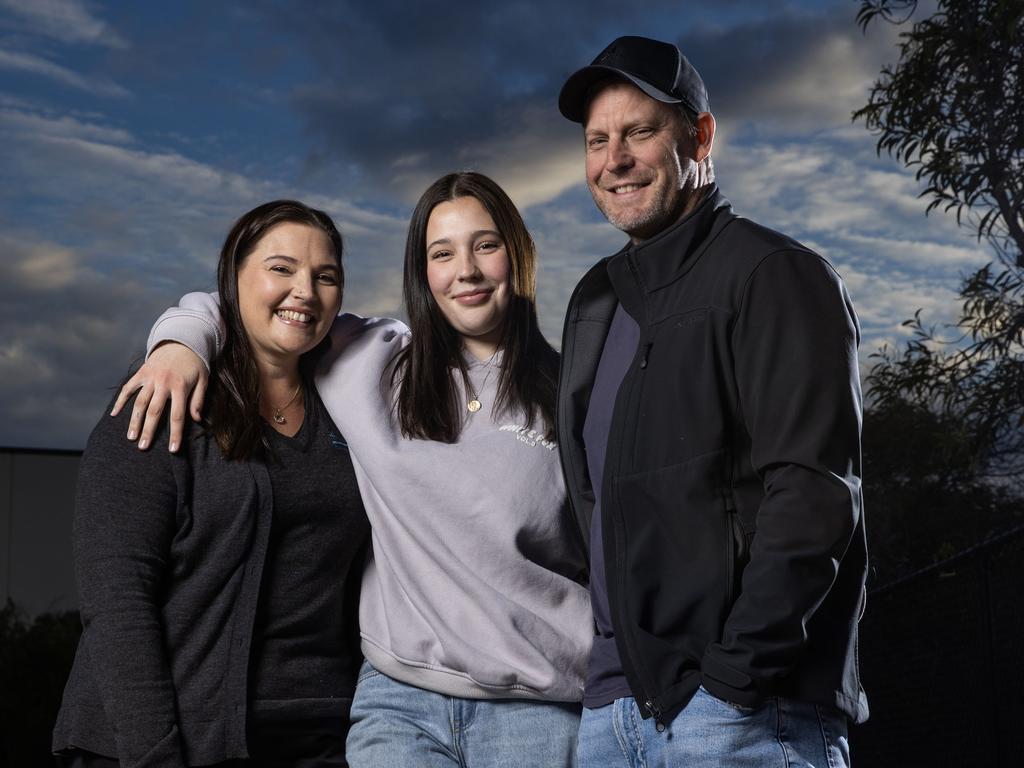
Leah was also diagnosed with Long QT however, a stress test performed on her heart five days after the arrest showed no signs of the disorder.
“They still cant tell us now what actually caused it,” mother Louise Newell said.
“She’s got an ICD in now pacemaker, but that’s also picked nothing up since.”
Ken Shaw 02/06/2023
It was 4.30am when Miriam Shaw woke up to her husband Ken gasping for breath.
The now retired nurse leapt into action, but didn’t immediately realise he was suffering a cardiac event but his breathing threw her off.
“I couldn't wake him and then I thought, but he’s breathing?” she said.
I kept thinking what if we get his heartbeat back but his brain’s gone.”
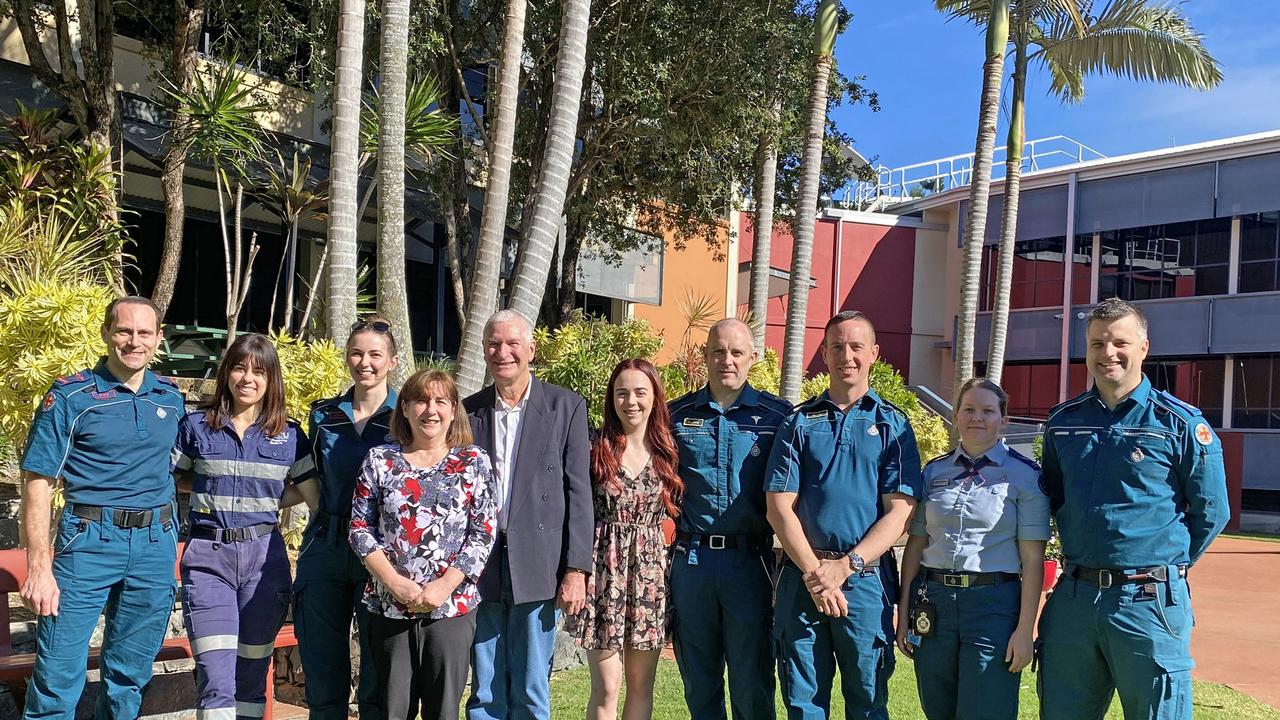
Paramedics arrived within minutes, and at some point Mrs Shaw was able to contact her daughter Brit in Sydney.
“I got off the phone and I turned to my partner was like, ‘my dad’s currently in arrest’ and he was like, ‘oh, okay they’ll get him back, it’ll be just like the movies’.
“I said ‘ah, it’s not quite like that.’ I kept thinking what if we get his heartbeat back but his brain’s gone.”
Mr Shaw turned 67 during his three weeks in hospital. It was a remarkably quick recovery.
He doesn’t remember the event.
“Even the day before is gone too,” he said.
THE NEED:
It takes just ten minutes to die after a cardiac arrest -an ambulance average response time is nine.
Cardiac arrest is Australia’s number one cause of death and most who experience it outside of a hospital do not survive.
Those who do, will likely suffer lifelong brain damage.
“Your chance of survival drops 10 per cent every minute,” Queensland Ambulance Service clinical director Tony Hucker said.
“There’s no ambulance service in the world that can provide a two minute response time for cardiac arrest.”
Many cardiac arrest patients will experience early warns signs such as chest pain, shortness of breath or fainting.
While there are various reasons a person can go into cardiac arrest, the best chance of recovery is CPR to keep oxygen flowing to the brain and the use of an Automated External Defibrillator (AED) which can analyse a heart rhythm, or lack of, and issue an electrical shock to restore it.
For cardiac arrests that occur outside of hospital, it is up to bystanders to perform these lifesaving tasks.
“While your heart’s an amazing pump, it runs on a set of circuits and circuit breakers and little impulses … sometimes your cells that are firing make up their own mind do weird stuff and trigger an arrhythmia,” Mr Hucker said.
“We could all have that and just not know.”
Mr Hucker has urged Queenslanders to keep up to date with CPR training, and become aware of where their nearest AEDs are, saying any intervention is worthwhile.
“Even if you‘re not trained, even if you’ve only seen it on telly and push up and down someone’s chest, that’s better than nothing,” he said.
“Start compressions, the AED will tell you how to shock. We can come along and do our fancy stuff, protecting the brain but without any of these interventions, you will not survive.
“Your heart will not restart itself.”
He said government mandates for CPR training would also assist survival rates, and schools should implement CPR training in primary years.
Mostly, he wants to see AEDs everywhere.
“We need to see them in every government agency vehicle, registered in all workplaces, just like fire extinguishers,” he said.
Originally published as Back from the dead: Four Queenslanders tell their stories after surviving near-death cardiac arrest experiences

